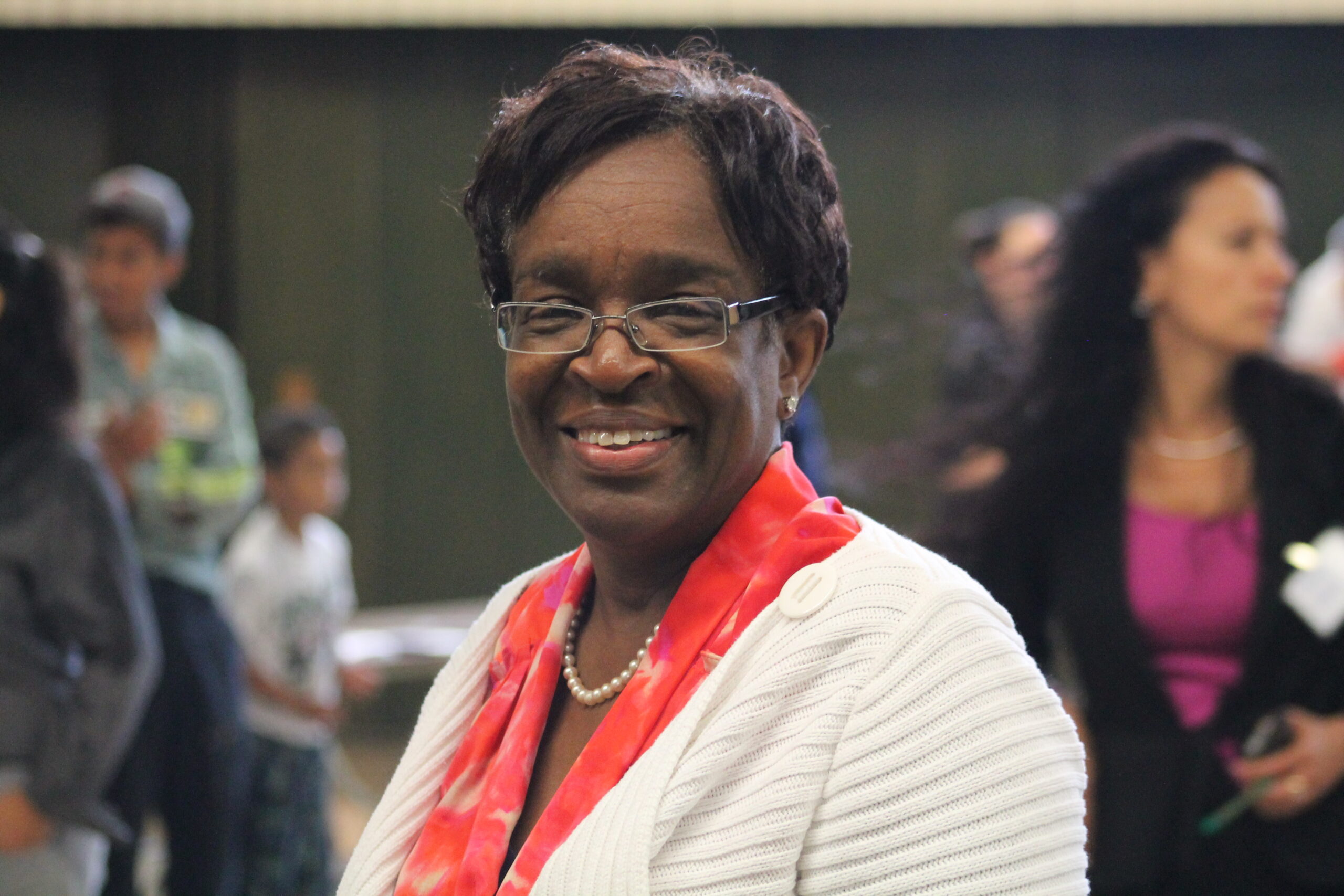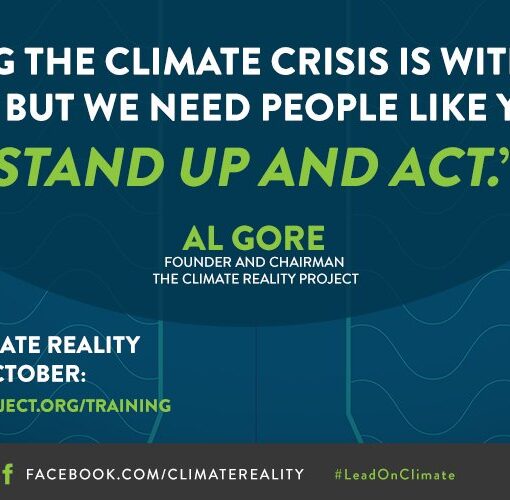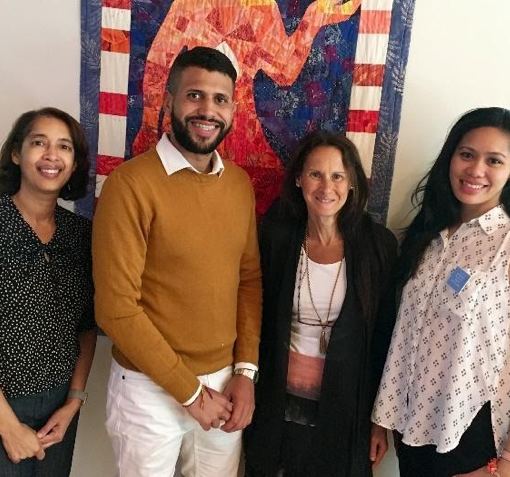 This blog series follows the national nursing organization members of the Nursing Collaborative on Climate Change and Health. The Nursing Collaborative, formed in partnership with the Alliance of Nurses for Healthy Environments and Climate for Health, is a combined effort among nursing organizations to build visible leadership on climate as a health priority. This nationwide network of organizations will be instrumental in moving the profession forward in addressing climate change, creating a climate literate nursing community, engaging all stakeholders in connecting climate and health, and building collective support and action for solutions. Learn more about the Nursing Collaborative here.
This blog series follows the national nursing organization members of the Nursing Collaborative on Climate Change and Health. The Nursing Collaborative, formed in partnership with the Alliance of Nurses for Healthy Environments and Climate for Health, is a combined effort among nursing organizations to build visible leadership on climate as a health priority. This nationwide network of organizations will be instrumental in moving the profession forward in addressing climate change, creating a climate literate nursing community, engaging all stakeholders in connecting climate and health, and building collective support and action for solutions. Learn more about the Nursing Collaborative here.
June’s blog post features Dian Palmer, RN, Chair of the Nurse Alliance of SEIU Healthcare, a founding member of the Nursing Collaborative on Climate Change and Health. The SEIU Nurse Alliance unites more than 80,000 registered nurses in 21 states for a stronger voice–in their workplaces, in their state capitals, and in Washington, D.C.–to advance the nursing profession and advocate for high quality, affordable care.
ANHE: Why is understanding climate change important for nurses?
Dian: As frontline caregivers, we often are the first to see how environmental factors affect the health of our patients and communities. After seeing an increasing number of emergency room patients with breathing problems and blood disorders, nurse members of SEIU Healthcare Pennsylvania were among the first to make a connection between these issues and fracking operations in the state. This is similar with climate change. Nurses are seeing the dangers associated with climate change manifesting across the United States, from the children with asthma we see in our emergency rooms to the seniors in our communities. Our nursing voice is trusted and it’s one that people will listen to and believe. It’s important for us to educate communities about the impacts of climate change, raise the alarm about the danger, and lead the charge in taking action.
There is also a disparate impact of climate change on communities of color and low-income communities that needs to be highlighted, as these populations will struggle the most. We are seeing this in Puerto Rico in the aftermath of Hurricane Maria and how those communities, many with limited resources, are struggling to rebuild. As we continue to see more of these catastrophic events, and as nurses are becoming more actively involved in caring for those affected by the devastation, we need to understand how climate change exacerbates natural disasters and how we can help build more resilient communities. It is incumbent upon us as nurses to speak out against climate injustices and to ensure that those most at risk of harm are included in discussions on solutions.
ANHE: What is your organization currently doing to increase awareness and engagement of your membership around climate change and health?
Dian: The Nurse Alliance of SEIU Healthcare has historically been very active around environmental justice issues. Our members participated in the People’s Climate March last year and are deeply committed to connecting environmental justice and climate change to the overall struggles working families experience in the fight for economic, racial, immigrant, gender, and LBGTIQ equality. With the adoption of the Environmental Justice for Working People resolution at our 2016 International Convention, SEIU members are prioritizing climate action advocacy, especially a transition to 100% clean energy by 2050, on state and federal political agendas.
Within SEIU, we created a Climate and Environmental Justice Committee, of which I am a member. In response to the series of severe disasters in 2017–from the humanitarian crisis in Puerto Rico to the devastation of low-income and immigrant communities in Houston, to those impacted by raging wildfires in the Western United States–the committee sent a letter to local SEIU leaders to raise awareness on the connection between climate justice and extreme weather. In that letter we provided a short training that explores the relationships between disasters and climate change and how poorer communities are disproportionately impacted. Elected officials often say talking about climate change immediately after a disaster is not an appropriate time, but we felt it was essential. If we truly want to solve these issues we cannot continue to ignore some of the root causes.
ANHE: How has your organization’s participation in the Nursing Collaborative on Climate Change and Health helped to elevate climate change as a health imperative?
Dian: Through our participation in the Nursing Collaborative on Climate Change and Health, the Nurse Alliance has been able to expand our educational offerings to our nurse members to increase awareness of this pressing issue. A couple years ago, a few of our nurse leaders attended the AHNE and Climate for Health conference in Washington, D.C., “Climate Change, Health, and Nursing,” to learn more about how we can be better advocates. At our 2017 biennial Nurse Alliance conference, more than 400 nurse members had the opportunity to attend an educational breakout session to learn more about climate change and the actions they can take within their practice settings.
This Collaborative effort is unique because it aims to bring together various nursing organizations across specialties and recognizes the importance of including all nursing voices and perspectives. SEIU nurses want to hear from other nurses who are engaged in climate action and learn how we can work together to advocate for solutions.
ANHE: What recommendations do you have for nurses or other nursing organizations that would like get involved in addressing climate change, such as within their health settings or communities?
Dian: I would recommend first start by educating yourself about how climate change impacts human health. As nurses, we need to be able to understand the issue in order to make an assessment of how daily health problems could be connected to climate change. Next, I would advise to join a local coalition or link up with an environmental health organization. Nurses are great assets as partners. We are a trusted voice to help carry the message about the health concerns that are being made worse because of climate change.
ANHE: Is there anything else you would like to add?
Dian: I’d like to emphasize how vital it is for nurses to be engaged in how much climate change is affecting the health of our patients and communities. Environmental changes and extreme weather events are now a reality in our everyday lives. We need to do our part to reduce our emissions and better prepare our communities.
Learn more about Dian Palmer: The first member of her family to graduate from college, Dian Palmer’s career started nearly 30 years ago working in a nursing home, and then later in a hospital and sexual assault treatment center. She now serves as President of SEIU Healthcare Wisconsin, an Executive Board Member of SEIU, and chair of the Nurse Alliance of SEIU Healthcare. She is a member of the Milwaukee Chapter Black Nurses Association. In addition, she serves as a member of the Democratic Party of Wisconsin Board, the UWHCA Public Authority Board of Directors and the Wisconsin Citizen Action Board of Directors.
Palmer holds a B.S. in Nursing from Carroll College/Columbia School of Nursing and is a State of Wisconsin Public Health Nurse specializing in Chronic Diseases in Minority Populations. She has three sons and resides in Milwaukee, Wisconsin.




